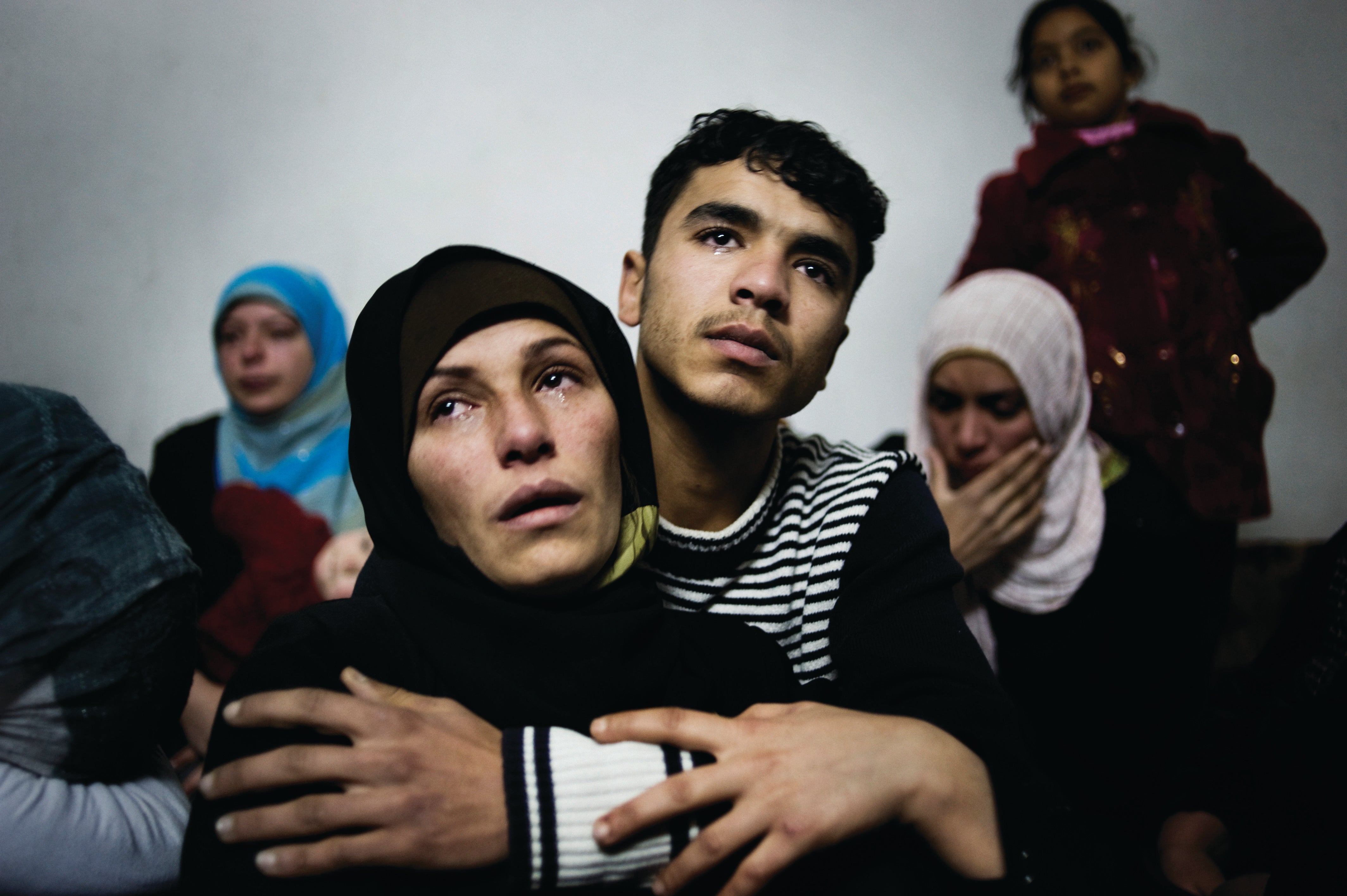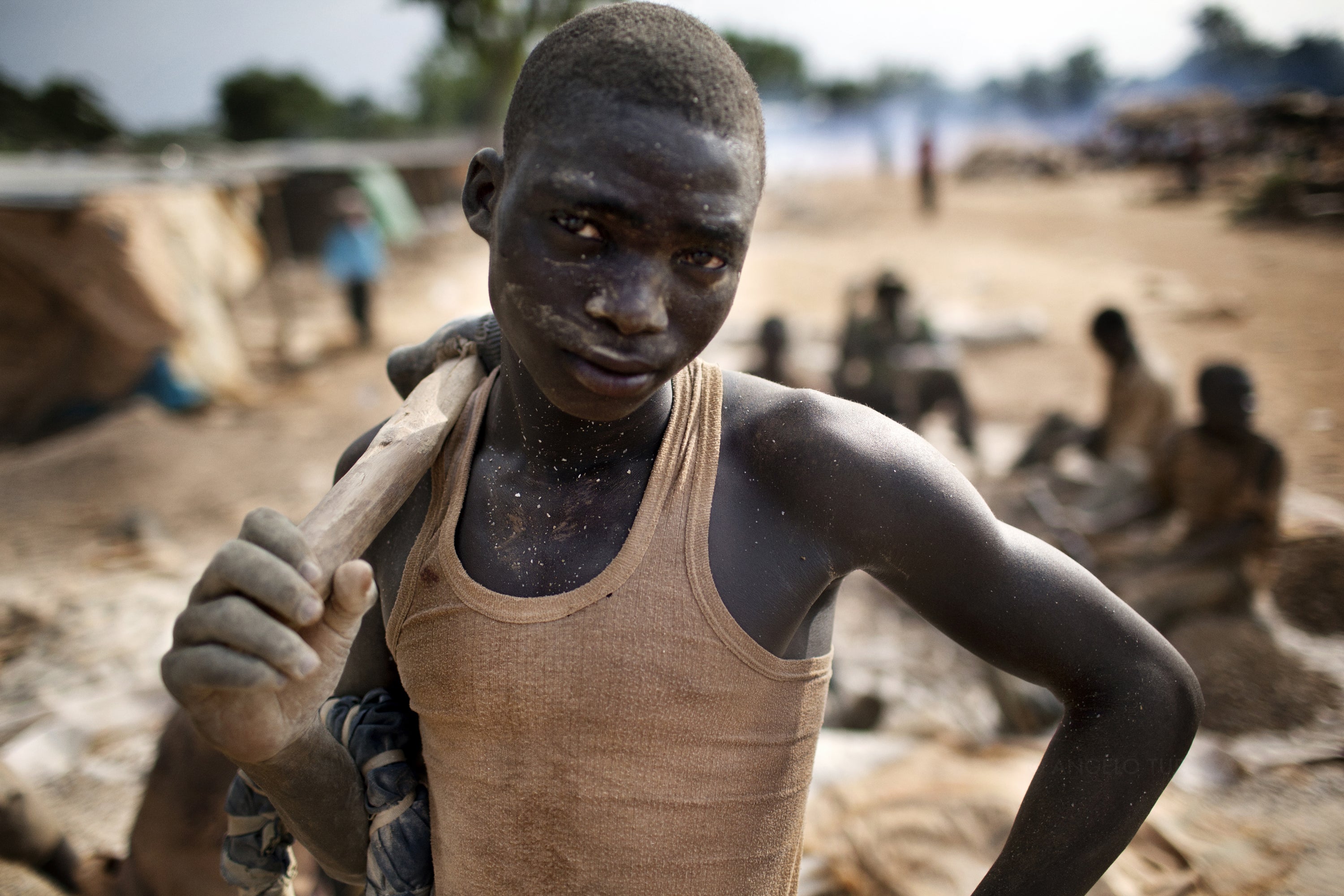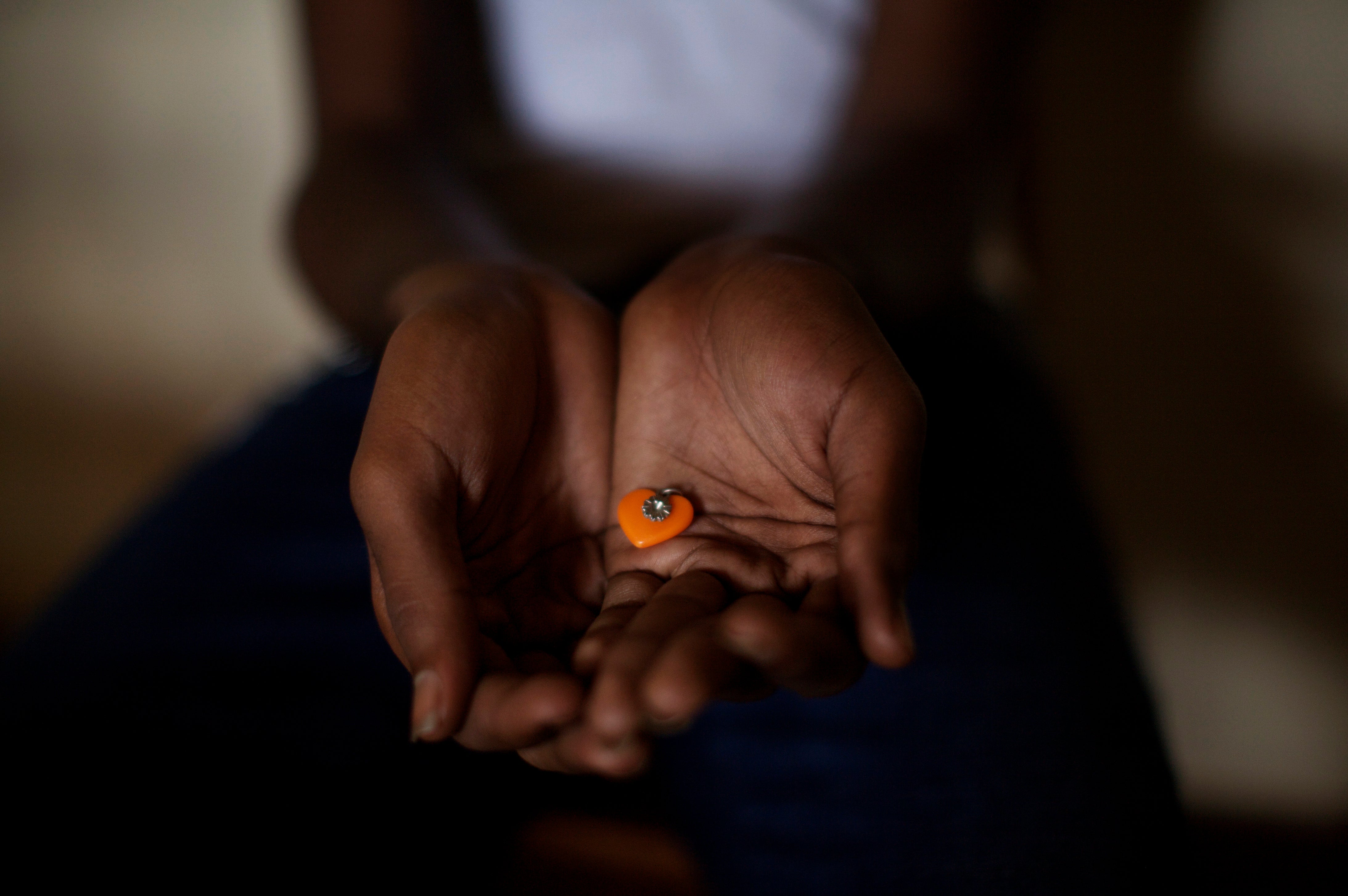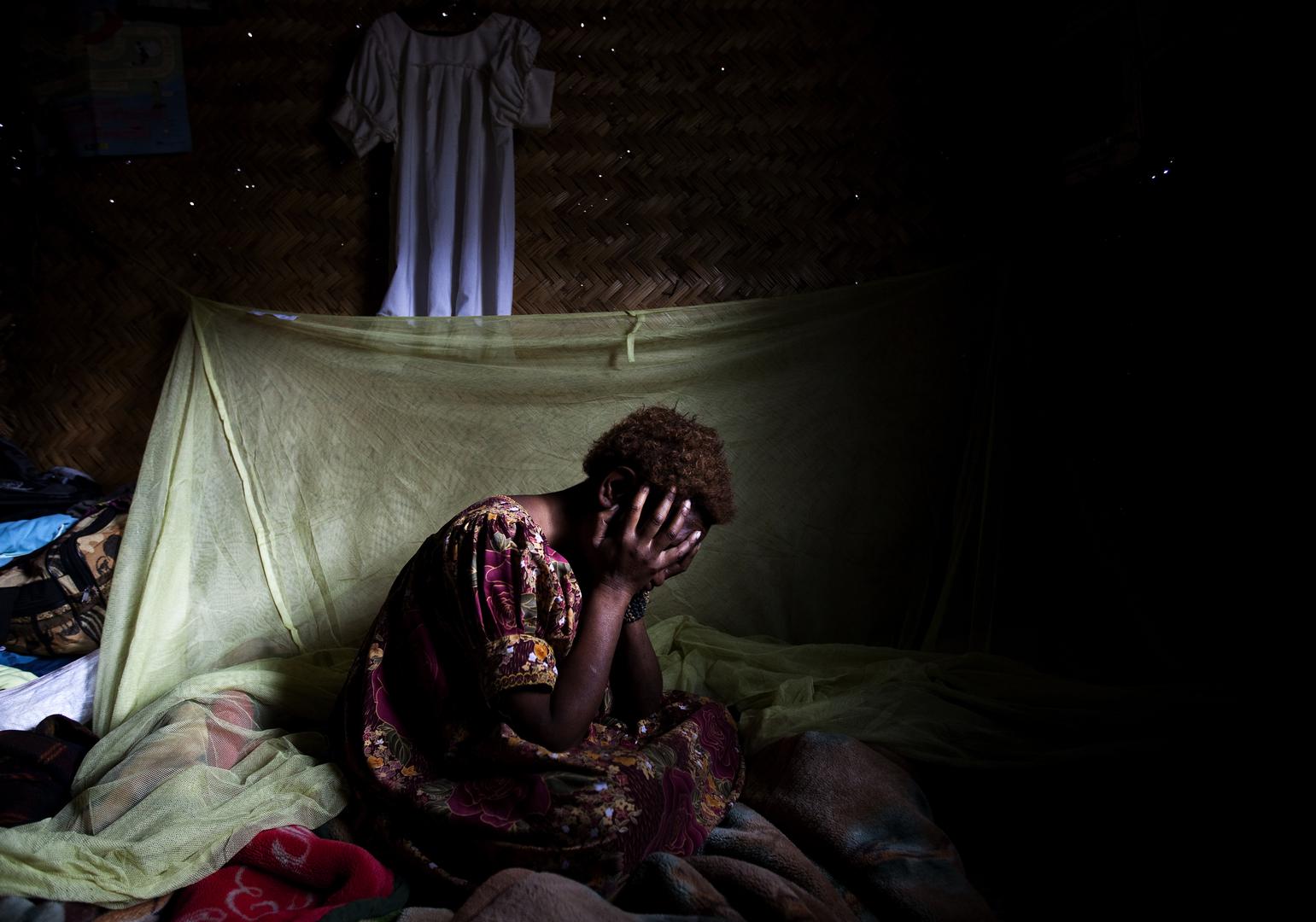The government of Prime Minister Yingluck Shinawatra, which won a landslide victory in July 2011 elections, has not yet addressed Thailand’s many serious human rights problems, including lack of accountability for the 2010 political violence, abuses in southern border provinces, free speech restrictions, and violations of refugee and migrant rights.
Accountability for Political Violence
At least 90 people died and more than 2,000 were injured during violent political confrontations from March to May 2010 as a result of unnecessary or excessive use of lethal force by Thai security forces, as well as attacks by armed elements operating in tandem with the United Front for Democracy against Dictatorship (UDD), known as the “Red Shirts.”
On September 17, 2012, the independent Truth for Reconciliation Commission of Thailand (TRCT) presented its final report, which blamed both sides for the 2010 violence but indicated that the security forces were responsible for the majority of deaths and injuries. The commission urged the Yingluck government to “address legal violations by all parties through the justice system, which must be fair and impartial.”
The results of the first post-mortem inquest delivered by the Bangkok Criminal Court on September 17, 2012, found that UDD supporter Phan Khamkong was shot dead by soldiers during a military operation near Bangkok’s Ratchaprarop Airport Link station on the night of May 14, 2010. However, in what appeared to be a response to pressure from Army Commander-in-Chief Gen. Prayuth Chan-ocha, the government adopted a policy that soldiers should be treated as witnesses in the investigations and protected from criminal prosecution.
At the same time, the status of investigations into alleged crimes by UDD-linked “Black Shirt” militants remains unclear. A number of those accused of violence against soldiers, police officers, and anti-UDD groups were released on bail with the expectation they would not be prosecuted. The UDD leadership and their supporters, including those holding positions in the government and the parliament, dismissed the TRCT findings and asserted that there were no armed elements within the UDD during the events of 2010.
The Yingluck government provided reparations to all those harmed by the 2010 violence. However, many victims and their families said they feared that financial compensation has been offered as a substitute to full investigations and commitment to bring perpetrators of violence to justice. Early drafts of a National Reconciliation Bill submitted to parliament in May 2012 by the ruling Pheu Thai Party and its coalition partners contained a proposal for a broad amnesty for leaders and supporters of all political movements, politicians, government officials, and members of the security forces involved in the 2010 violence.
On November 24, 2012, police deployed teargas, shields, and batons to push back anti-government Pitak Siam protesters, who charged at police lines and drove trucks through barricades. At least 52 protesters and 29 police officers were injured in the clashes.
Freedom of Expression and the Media
According to a study by the National Human Rights Commission of Thailand, the number of arrests and convictions for lese majeste (insulting the monarchy) offenses declined significantly since Prime Minister Yingluck came to office in 2011. On October 31, 2012, the Bangkok Criminal Court acquitted Red Shirt supporter Surapak Phuchaisaeng of lese majeste charges, ruling that the prosecutor had failed to prove Surapak's computer was used for posting on Facebook messages deemed insulting to the royal family. Arrested in September 2011, Surapak had been the first lese majeste case brought by the Yingluck government.
However, Thai authorities continue to use the lese majeste statute in article 112 of the penal code, and the Computer Crimes Act, to suppress and prosecute perceived critics of the monarchy.
On October 10, 2012, the Constitutional Court ruled that the restriction of freedom of expression and the penalty for lese majeste offenses were constitutional.
Since December 2011, Thai authorities have blocked more than 5,000 alleged lese majeste webpages.
Other persons charged with lese majeste offenses were denied bail and remained in prison for many months, awaiting trial. In most cases, their trials resulted in harsh sentences. Amphon Tangnoppakul, who was sentenced in November 2011 to 20 years in prison for sending four lese majeste SMS messages in 2010, died of cancer in prison on May 8, 2012.
Lese majeste prosecutions also target intermediaries, leading to widespread self-censorship in discussion about the monarchy. On May 30, 2012, the Bangkok Criminal Court sentenced Chiranuch Premchaiporn, website manager of the well-known online news portal Prachatai, to a suspended one-year prison term for lese majeste statements posted by others on the Prachatai webboard. Labor activist and magazine editor Somyos Pruksakasemsuk was arrested in April 2011 and charged with lese majeste in connection with articles written by someone else in his Voice of Taksin magazine. He was denied bail eight times during the course of his pre-trial detention, shackled, and compelled to appear in hearings in four different provinces, despite the fact that witnesses were resident in Bangkok. At this writing, the verdict was scheduled for December 19.
Deputy Prime Minister Chalerm Yubamrung and military commanders have publicly and repeatedly warned human rights activists, academics, and political movements from about calling for the reform of lese majeste laws.
Violence and Human Rights Abuses in Southern Border Provinces
Separatist insurgents in the network of National Revolution Front-Coordinate (BRN-Coordinate) continued in 2012 to target civilians in bomb attacks, roadside ambushes, drive-by shootings, and assassinations.
Civilians make up more than 90 percent of the more than 5,000 deaths in the southern border provinces since January 2004. Insurgent groups have used violence to intimidate and ultimately drive out ethnic Thai Buddhists in Pattani, Yala, and Narathiwat, as well as to discredit Thai authorities for being unable to protect citizens and to keep ethnic Malay Muslims under control.
The Yingluck government initiated a government-funded compensation scheme for Malay Muslim victims of abuses committed by the security forces. However, Thai security forces faced few or no consequences for extrajudicial killings, torture, enforced disappearances, and other abuses.
Local human rights groups reported the “disappearance” of Nasulan Pi in Narathiwat’s Joh Airong district on January 17, 2012, after two armed security personnel forced him into their pickup truck and drove away.
After former Prime Minister Thaksin Shinawatra and Malaysia’s Prime Minister Najib Razak pressured exiled separatist leaders to enter negotiations with Thai officials, insurgents retaliated by attacking the commercial districts of Yala and Songkhla with car bombs on March 31, 2012. At least 16 civilians were killed and more than 400 wounded.
Insurgents continued to burn down government-run schools and attack teachers whom they accused of representing the ideology of the Thai Buddhist state. On November 22, 2012, insurgents shot dead Nanthana Kaewjan, a teacher from Pattani's Ban Thakamsam school. Since January 2004, insurgents have killed 154 teachers from government-run schools. Insurgents also recruited children from private Islamic schools to participate in armed hostilities and perform secondary tasks such as distributing separatist leaflets. They also used some private Islamic schools to assemble bombs.
Reacting to domestic and international concerns, the Fourth Region Army Commander Lt. Gen. Udomchai Thammasarorat ordered security units to stop using government schools as barracks.
In 2012, insurgents admitted that they planted antipersonnel landmines in and near rubber plantations owned by Thai Buddhists to force them to relinquish land ownership.
Anti-Narcotics Policy
While vowing to respect human rights and due process when implementing anti-narcotics policy, the Yingluck government still denied any official involvement in the more than 2,800 extrajudicial killings that accompanied then-Prime Minister Thaksin Shinawatra’s 2003 “War on Drugs.”
On March 14, 2012, the parliamentary Police Affairs Committee found that police officers from the Sakon Nakhon provincial anti-drug squad used excessive force in the 2011 fatal shooting of Pairote Saengrit, and had planted a bag of methamphetamine on his body after his death.
After a seven-year trial, the Bangkok Criminal Court found five police officers from Kalasin province guilty on July 30, 2012, for the murder of Kiettisak Thitboonkrong. Kiettisak's case was the first prosecution of more than 20 extrajudicial killings in Kalasin province allegedly committed by this group of police officers from 2003 to 2005. However, the judge released the convicted officers on bail pending the outcome of their appeal, raising serious concerns about the safety of witnesses.
As of November 2012, the Yingluck government had sent more than 500,000 drug users to so-called rehabilitation centers, mostly run by the military and the Interior Ministry, where the ostensible treatment is based on military-style physical exercise. Routinely detained in prison prior to compulsory rehabilitation, detainees get little or no medical assistance for drug withdrawal symptoms.
Human Rights Defenders
Since 2001, more than 20 environmentalists and human rights defenders have been killed in Thailand. Investigations into the killings have frequently suffered from shoddy police work, the failure of the Justice Ministry to provide adequate protection for witnesses, and political interference in law enforcement efforts.
In the southern border provinces, Malay Muslim human rights defenders, paralegals, and student activists have often been profiled by security agencies as “insurgent sympathizers” and subjected to surveillance, arbitrary arrest, and detention.
Refugees, Asylum Seekers, and Migrant Workers
Thailand is not a party to the 1951 Refugee Convention, and has no law that recognizes refugee status. Asylum seekers and refugees who are arrested often face long periods of detention until they are accepted for resettlement or agree to be repatriated at their own expense.
Burma's President Thein Sein called for Burmese exiles to return as his government signed preliminary ceasefire agreements with nearly all armed ethnic groups. But enormous obstacles remain, including a lack of firm political settlements, landmines, and still-blocked access of the office of the United Nations High Commissioner for Refugees (UNHCR) to the Burma side of the border. Prime Minister Yingluck publicly assured that, regardless of what appeared to be positive developments in Burma, the 140,000 refugees living in camps on the Thai-Burmese border would not be forced to return home.
Thai authorities continued to implement a policy of intercepting and pushing back boats carrying ethnic Rohingya Muslims from Burma and Bangladesh despite allegations that such practices led to hundreds of deaths in 2008 and 2009.
Thai labor laws afforded migrant workers little protection in 2012. A migrant worker registry and “nationality verification” scheme provides legal documentation for workers, but does little to counter the impunity with which employers violate such workers’ rights. Migrant workers remain extremely vulnerable to labor exploitation, physical and sexual violence, and trafficking. Male migrants in particular face being trafficked onto fishing boats.
In October 2012, factory owners and local officials prevented thousands of Burmese workers living in the border town of Mae Sot from leaving the area to search for work elsewhere in Thailand, despite possessing legal work permits that allowed them to do so.
After receiving strong criticisms at home and abroad, Labor Minister Padermchai Sasomsap in July 2012 scrapped his plan to send home migrant workers who are three to four months pregnant.
Key International Actors
The United Nations, United States, Australia, European Union, Switzerland, and Norway expressed strong support for political reconciliation and greater human rights protections in Thailand in 2012, calling on the government and all other conflicting political factions to engage in dialogue and refrain from using violence. On September 18, 2012, the UN High Commissioner for Human Rights Navi Pillay urged the Yingluck government to act on the TRCT’s recommendations by holding those responsible for the 2010 violence to account and addressing reforms identified by the omission.




